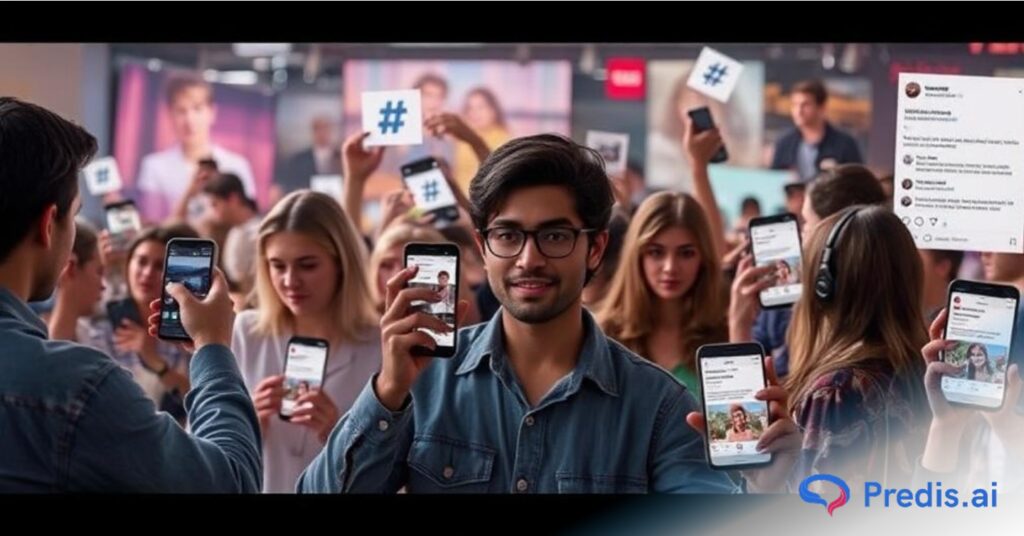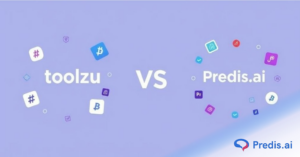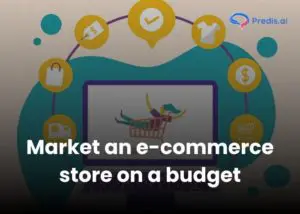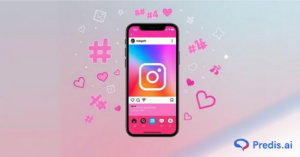Though digital marketing is continually evolving, 2025 makes one thing abundantly evident: being authentic wins! As companies struggle to grab consumers’ attention in a crowded market, user-generated content (UGC) has started to change things. While user-generated content (UGC) displays what individuals truly feel and do in their daily life, traditional advertising sometimes seems planned and polished. Studies reveal that consumers consider user-generated content (UGC) to be real 2.4x more often than brand generated content. In a time when trust is more critical than ever, these honest acts directly result in more engagement, more sales, and stronger brand loyalty. This blog will take you through the top UGC ad examples that made headlines in 2025. From global giants to niche players, these brands successfully turned their customers into brand ambassadors and storytellers. Read on! To get inspired and learn how to implement UGC in your marketing strategy.
What Are UGC Ads?
Text, videos, photos, and reviews that are generated by individuals and not brands, are called user-generated content (UGC). When this content is repurposed or featured in marketing campaigns, it becomes a UGC ad.
These ads work because they show real individuals using a product or service in their daily life. Gen Z and Millennials love transparency, thus authenticity promotes trust, among these individuals!
Common Forms of UGC Ads
- Instagram Reels and Stories showcase customer testimonials or product demos.
- TikTok videos showing product unboxings or challenges.
- Youtube vlogs reviewing or featuring brand experiences.
- Photos and reviews shared on brand websites or email campaigns
UGC helps brands to establish credibility through social proof. This improves their engagement rates. UGC helps the brands and businesses to reduce content creation cost and also to strengthen their community loyalty.
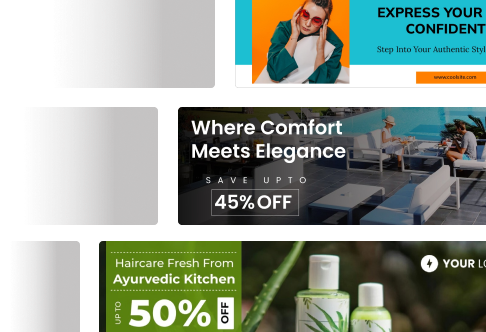
Why UGC Works Better Than Traditional Ads?
Professional campaigns lack the kind of impact that UGC ads have! Let’s explore the reasons, below:
1. Trust Factor
Consumers trust each other. Nielsen found that 92% of individuals trust peer recommendations over brand content. UGC is more convincing because of peer approval.
2. Authenticity Over Perfection
Beautifully polished commercials/ads can feel detached from reality. This is where UGC becomes important as it seems genuine and uncensored. This encourages and motivates the audiences to take the desired actions.
3. Increased Engagement
UGC is more likely to earn likes, shares, and comments because it looks like something a friend would post and not a brand. That social engagement fuels virality.
4. Cost-Effective Content Creation
Why pay an agency to make 50 videos when you can use 50 genuine consumers for free? In this way, brands can get authentic and diverse content for less and also an increase in their engagement rate! You can go also check out UGC for Ecommerce brands for a full guide!
5. Fuels Community Growth
Customers feel connected to your brand when they participate in your content or content creation! This perpetuates loyalty and advocacy.
Top 15 Best UGC Ad Examples in 2025
1. Glossier – Everyday People, Everyday Beauty
Glossier invited customers to share their unfiltered skincare routines using #GlossierIRL. The brand reposted these videos on Instagram and TikTok. This approach not only boosted product trust but reinforced Glossier’s identity as a brand for everyone, not just models.

2. GoPro – “Be a Hero” Series
GoPro users submitted thrilling footage from hiking, surfing, and biking adventures. It curated the best into a cinematic video series. The raw user clips showcased the product’s durability and created emotional impact—a marketing win on every front.
3. Nike – #YouCantStopUs Campaign
Nike tapped into global emotions with user-submitted videos of athletes training against the odds. The campaign, stitched together into a powerful montage, showed resilience and unity. The authenticity made it one of the most-shared sports campaigns this year.
4. CeraVe – TikTok Skincare Reviews
CeraVe leveraged TikTok by encouraging users to post skincare routines featuring its products. Dermatologist influencers and everyday users alike joined the trend, establishing trust and skyrocketing product sales.
5. Airbnb – Guest Storytelling Campaign
Airbnb featured real guest stories and videos in their ads. These visuals of cozy cottages, scenic stays, and local discoveries painted a more relatable picture than polished commercials ever could.
6. Gymshark – Transformation Reels
Fitness enthusiasts documented their transformation journeys in reels and short videos. Gymshark reposted the most compelling ones, inspiring their community and driving product demand.

7. LEGO – “Build with Us” UGC Contest
LEGO ran a contest encouraging users to showcase their creative builds. Over 10,000 entries poured in, and the brand turned the best ones into ads on YouTube and Instagram, celebrating fan creativity.
8. Starbucks – Red Cup TikTok Trend
Starbucks turned their seasonal red cups into a UGC magnet. Fans posted outfit inspiration, drink hacks, and cozy vibes using #RedCupSeason. Starbucks featured these videos in ads, keeping the holiday spirit alive.
9. Duolingo – Meme Reactions + Duets
Duolingo embraced humor by reacting to memes made by users. The brand’s TikTok feed became a blend of user duets and playful reactions, making learning a language feel fun and approachable—something you can now replicate easily with an AI meme generator.
10. Notion – User-Created Templates
Notion highlighted user-created productivity templates and dashboards. These were showcased on their site and ads, giving credit to creators while demonstrating real-world utility.
11. ASOS – #AsSeenOnMe Campaign
ASOS invited customers to share outfit photos with #AsSeenOnMe. The best ones were featured on product pages and in Instagram ads. This gave shoppers real-life styling ideas and encouraged more user participation.

12. Doritos – “Crash the Super Bowl” UGC Revival
Doritos brought back its iconic campaign by asking fans to submit 15-second ad clips. The finalists were aired during the Super Bowl, bringing a wave of creativity and mass brand exposure.
13. Coca-Cola – “Share a Coke” Custom Stories
This year, Coca-Cola invited users to share the story behind their personalized bottle. Emotional videos about friendships, celebrations, and memories were turned into digital ads, creating deep emotional resonance.
14. Parachute – Real Hair Diaries
Parachute asked users to document their 30-day hair care routines using its coconut oil. The authentic transformation videos became proof of effectiveness and increased trust among natural product seekers.

15. Netflix – Reaction Videos & Fan Art
Netflix turned fan art, TikTok reactions, and cosplay content into a content engine. Whether it was Bridgerton-themed dances or Wednesday memes, the brand embraced fandoms and turned passion into promotion.
What Made These UGC Ad Examples Work?
- Relatability: The content felt real. These were real people using real products—not models in studios.
- Community Building: Each campaign fostered a sense of belonging. Users didn’t just consume content; they became part of it.
- Hashtag Power: Branded hashtags like #YouCantStopUs or #RedCupSeason made it easy to track, participate in, and share campaigns.
- Smart Platform Choices: Brands picked the platforms their audiences used most, whether it was TikTok, Instagram Reels, or YouTube Shorts.
- Creator Recognition: Shouting out the original creators gave users a reason to keep contributing, turning them into loyal advocates.
How to Leverage UGC for Your Brand?
- Start a Branded Hashtag Challenge: Encourage your community to post using a unique hashtag. Feature the best posts on your socials and website.
- Turn Reviews into Ads: Highlight glowing customer reviews in your ad creatives. Use quotes, screenshots, or short video clips.
- Incentivize Submissions: Offer giveaways, discounts, or features to encourage participation.
- Use the Right Tools: Platforms like Predis, Taggbox, Later, TINT, and Yotpo help you collect, curate, and repurpose UGC at scale.
- Collaborate with Micro-Influencers: Partner with everyday creators who have loyal followings. Their content is often more trusted than celebrities.
Mistakes to Avoid in UGC Campaigns
- Not Asking Permission: Always get consent before using someone’s content.
- Over-Editing UGC: Too much polish defeats the purpose of authenticity.
- Lack of Engagement: If you’re not liking, sharing, or commenting on submissions, your community will lose interest.
- Irrelevant Hashtags: Stay clear and on-brand to keep participation focused.
The Future of UGC Advertising: Trends to Watch
- AI-Curated UGC: Brands will use AI to automatically identify and select top-performing user content.
- UGC + AR/VR Integration: Expect UGC to go immersive with AR filters and VR experiences embedded in content.
- Data-Driven Storytelling: UGC will be analyzed more deeply to create tailored content journeys based on demographics.
- Micro-Niche Communities: Instead of broad audiences, brands will build UGC campaigns around niche segments for stronger relevance.
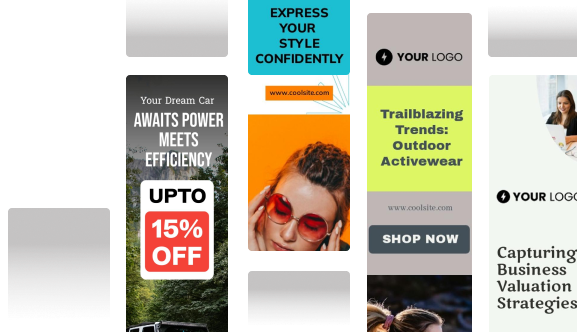
Conclusion
User-generated content has officially moved from a “nice-to-have” to a powerful growth engine. The standout UGC ad examples of 2025 prove that real voices and real experiences consistently outperform polished brand campaigns. When people see others like them sharing honest stories, it creates trust, fuels engagement, and encourages action in a way traditional ads rarely can.
No matter the size of your brand, UGC is one of the most accessible ways to elevate your marketing. Start by encouraging your community to participate, highlight the best submissions, and build genuine relationships with your creators. Stay consistent, reward creativity, and keep your content authentic. The more real your brand feels, the faster your audience will connect, trust, and convert.
UGC isn’t just shaping the future but it is the future. And now is the perfect time to make it part of your strategy.
FAQs
UGC refers to the content created by users and repurposed by brands for their promotional use.
UGC ads are so effective because they build trust, foster engagement, and offer social proof.
Yes! small brands can use UGC. In fact, they often benefit the most from community-driven marketing.
To encourage the customers to create UGC, start by asking your relevant audience to create content, use hashtags, run contests, or offer features and discounts.


